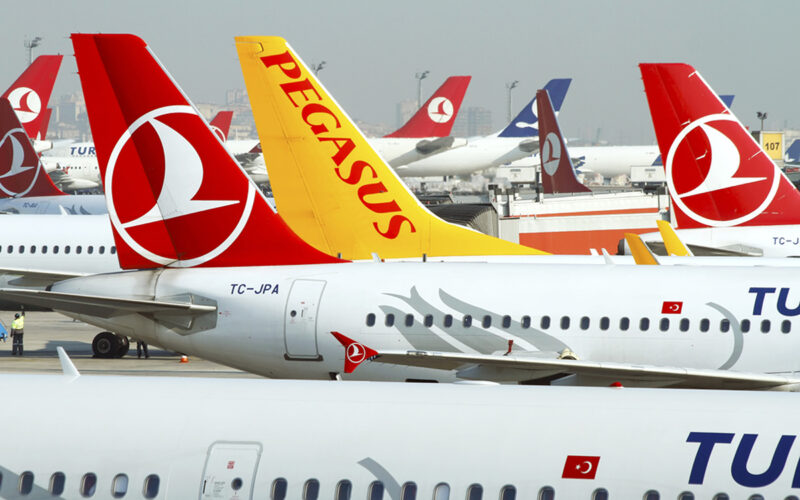Turkish, Pegasus Airlines Halt Israel Flights, Surrender Slots
By:
Pilotcenter.net
Turkish Airlines and Pegasus Airlines have recently made a significant decision regarding their services to Tel Aviv, Israel. The two carriers have chosen not to resume flights to Israel's primary airport in the capital despite holding valuable landing and take-off slots. This decision follows the escalation of hostilities between Israel and Hamas in Gaza back in October 2023.
Prior to the suspension of services, both airlines were key players at Ben Gurion International Airport in Tel Aviv. Turkish Airlines, in particular, was a prominent foreign airline at the airport and held a substantial market share. The Istanbul to Tel Aviv route was a profitable one for Turkish Airlines, serving as a gateway to various destinations in Europe, North America, and Asia.
Pegasus Airlines also had a significant presence on the route, contributing to the airport's overall traffic. The decision by Turkish Airlines and Pegasus Airlines not to return to Tel Aviv could have ripple effects, potentially allowing other airlines to seize the opportunity and expand their operations at the airport.
The 'use it or lose it' slot rules at major airports worldwide played a role in prompting the airlines to make a decision regarding their Tel Aviv services. The uncertainty surrounding the security situation in the region further complicated the matter. As a result, Turkish Airlines and Pegasus Airlines have opted not to maintain their slots or resume flights to Tel Aviv for the time being.
This move could pose challenges for the airlines if they choose to resume operations in Israel in the future. Turkish Airlines, in particular, operates as a profit-making business but is also subject to political influences, given its partial ownership by a state investment fund.
In a parallel development, Virgin Atlantic recently announced its decision to permanently cancel flights between London-Heathrow and Tel Aviv, joining Turkish Airlines and Pegasus Airlines in refraining from serving the Israeli market. This decision by multiple airlines underscores the evolving landscape of international air travel and the factors that influence route planning.

